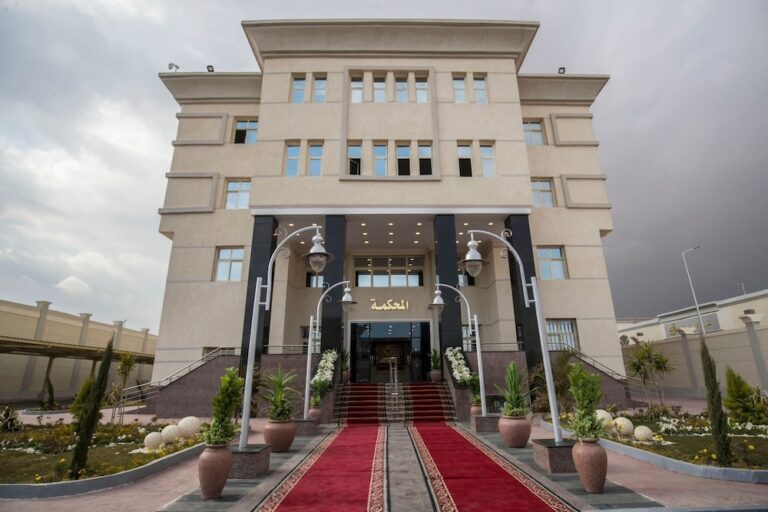(EOHR/IFEX) – The following is a 2 July 2000 EOHR press release: The EOHR condemns the arrest of Dr Saad El Din Ibrahim. The Egyptian Organization For Human Rights strongly condemns the state security’s raid on the house of Dr Saad El Din Ibrahim, professor of political sociology at the American University in Cairo and […]
(EOHR/IFEX) – The following is a 2 July 2000 EOHR press release:
The EOHR condemns the arrest of Dr Saad El Din Ibrahim.
The Egyptian Organization For Human Rights strongly condemns the state security’s raid on the house of Dr Saad El Din Ibrahim, professor of political sociology at the American University in Cairo and director of the Ibn Khaldoun for Developmental Studies. He was arrested at midnight on Friday 30 June 2000 and some of his documents were confiscated. At the same time, another force from the state security investigation bureau raided the Ibn Khaldoun Center and arrested two of the center’s staff, Nadia Abdel Nour the Financial Director of the Center (a Sudanese national), and Ossama Hamad. The force confiscated a number of the center’s accounts files, computer disks, computers, a safe and a number of pamphlets.
Dr Saad El Din was held at the headquarters of the Higher State Security Prosecution Bureau until the following morning, Saturday 1 July 2000, where he was interrogated by the State Security Prosecutor, who charged him with the following:
– collecting funds without a permit from the official authorities
– misappropriation of funds in a fraudulent manner to prepare forged voting lists and cards
– cooperation with others to prepare forged voting lists and cards
– preparing public media containing false phrases and rumors and disseminating provocative propaganda that could cause damage to the public interest
– accepting funds from a foreign country with the purpose of carrying out work harmful to the national interest by producing a film that damages Egypt’s reputation abroad.
The prosecutor ordered the arrest of Dr Saad El Din Ibrahim and Nadia Abdel Nour for fifteen days pending investigation. He also ordered the seizure and arrest of three other workers, Khaled Fayyad, Mamdouh Mansour and Ayman Gabel, from the Ibn Khaldoun Center. The interrogation was attended by Hafez Abu Saada, the Secretary General of the EOHR, Negad Al Borai and Nasser Amin, board members of the organization. The arrest of Dr Saad Al Din Ibrahim is a repetition of the arrest of Hafez Abu Saada, the Secretary General of the EOHR, who was charged with receiving funds from a foreign entity to prepare a report that damaged the reputation of the country. The report in question was the organization’s report on the torture of citizens in Al Kosh village in August 1998.
The organization believes that the arrest of Dr Saad El Din Ibrahim and his colleagues is a continuation of the state’s hostile policy towards the institutions of civil society in Egypt and another attempt to silence all institutions that endeavor to participate in the public life in the country. Based on the organization’s experience in the case against its secretary general, it believes that the State is intimidating civil society institutions to wear out their energy and block their initiatives in defense of human rights or democracy and in their participation in economic, social and political development. While the organization strongly condemns this action, it makes assurances that such practices will only frustrate and bury the society’s activist forces and evacuate civil society institutions.
The organization expresses its full solidarity with Dr Saad El Din Ibrahim and the members of the Ibn Khaldoun Center and calls on all forces of democracy in Egypt and worldwide to support the Ibn Khaldoun Center’s members in defense of democracy and civil society. It also calls upon the academic society in Egypt to support Dr Saad El Din Ibrahim. Finally, it appeals to the Egyptian authorities to stop their unjustifiable security campaigns against human rights activists, in respect for democracy and human rights, so that the discourse of the state internationally does not conflict with its practices internally.


